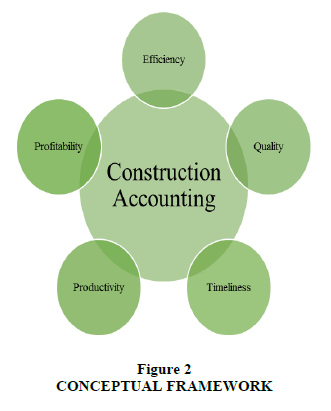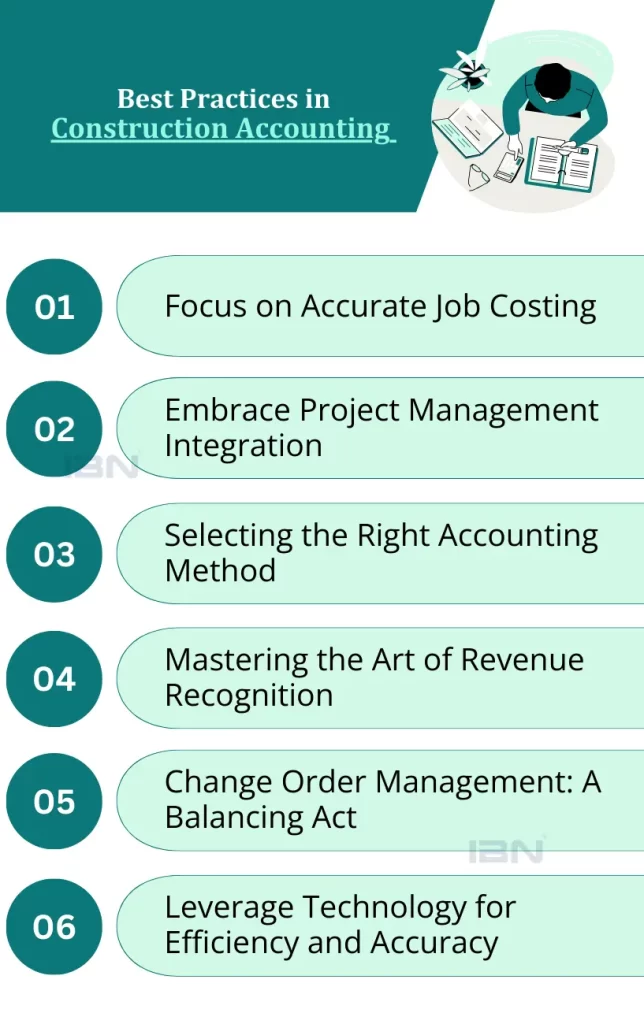Construction Accounting: Navigating Taxes and Expenses in the Construction Sector
Construction Accounting: Navigating Taxes and Expenses in the Construction Sector
Blog Article
The Necessary Duty of Building Accountancy in Ensuring Financial Precision
In the complex landscape of building and construction administration, the function of construction accounting arises as an important element in keeping monetary stability. By giving a framework for accurate tracking of earnings and expenses, this customized accountancy discipline not just aids in reliable task oversight but also improves stakeholder confidence. Yet, the implications of disregarding this vital function can be extensive, influencing everything from task timelines to overall success. As we explore the essential parts and best methods within building and construction accounting, the relevance of this self-control comes to be increasingly evident. What are the covert prices that could jeopardize project success?
Relevance of Accurate Financial Monitoring
Accurate monetary monitoring is the foundation of effective construction bookkeeping, acting as an essential device for job supervisors and economic policemans alike. In the extremely vibrant building and construction atmosphere, where spending plans can rise and fall and timelines can move, exact financial monitoring makes sure that all financial tasks are documented and kept an eye on in real time. This method makes it possible for stakeholders to make enlightened decisions based upon updated financial information, therefore decreasing the threat of overspending and enhancing task profitability.
Additionally, accurate monetary monitoring helps with compliance with governing needs and sector criteria. By keeping detailed records of expenditures, profits, and task prices, construction firms can easily produce needed documentation during audits and evaluations. This openness not just promotes trust amongst clients and partners but also alleviates prospective legal issues.

Trick Parts of Construction Accountancy
In the world of building bookkeeping, several crucial components play a critical role in ensuring monetary accuracy and task success. Among the most essential components is task setting you back, which involves tracking all costs connected to a specific task, consisting of labor, products, and expenses. This procedure permits precise budgeting and forecasting, enabling building and construction firms to examine profitability properly.
An additional important part is change order management, which resolves changes to the original contract. Precise documents and tracking of these modifications are essential for keeping project budgets and timelines. Additionally, monetary coverage plays a critical role, giving stakeholders with insights into job performance and general financial health and wellness.
Cash money circulation management is also significant, as it makes sure that the business has sufficient liquidity to satisfy its obligations while taking care of task expenditures. Compliance with regulative demands and tax responsibilities is a vital facet of construction bookkeeping, guarding the firm from legal consequences.
Impact on Task Administration
Effective construction accounting dramatically affects project monitoring by providing important financial information that informs decision-making. Accurate economic records allow job managers to track spending plans, projection cash moves, and assess project profitability in real time. This monetary understanding is essential for making informed decisions pertaining to source allowance, subcontractor option, and project scheduling.
Furthermore, construction bookkeeping assists in risk management by identifying variances in between approximated and real expenses. When job supervisors can promptly pinpoint inconsistencies, they can carry out corrective steps to reduce possible financial losses. This positive method not only assists in maintaining task timelines however also improves total job performance.
Additionally, efficient building accountancy sustains interaction amongst stakeholders, including customers, capitalists, and employee. construction accounting. Clear economic coverage cultivates depend on and partnership, ensuring that all celebrations are straightened on task objectives and useful reference monetary assumptions
Best Practices for Financial Accuracy
Establishing best techniques for monetary accuracy within building accounting is important for making certain task success. An essential technique is maintaining meticulous record-keeping. This consists of tracking all purchases connected to labor, products, and expenses expenses in real-time, which aids to recognize discrepancies early and makes sure that monetary data is always up to day.

An additional best method is carrying out a robust budgeting procedure. Precise budgeting not only aids in forecasting job costs however also provides a standard versus which actual costs can be gauged. On a regular basis comparing real costs to budgeted amounts permits prompt changes and much better monetary control.
In addition, performing regular audits is crucial. Internal audits can recognize potential mistakes or deceptive activities prior to they rise, while outside audits supply an impartial review of monetary practices, guaranteeing compliance with market standards.
Training team in monetary monitoring and audit principles is likewise essential. Well-informed workers are better outfitted to spot inaccuracies and understand the significance of economic accuracy in project monitoring.
Last but not least, cultivating open communication between task supervisors and monetary groups enhances cooperation, making sure that economic decisions are aligned with project goals (construction accounting). These finest practices jointly contribute to a strong structure for economic accuracy in construction accounting
Devices and Software Application for Building Accountancy
Choosing the right tools and software application for construction audit can dramatically simplify economic management procedures. The complexity of building and construction jobs necessitates specialized bookkeeping services that suit unique workflows, task tracking, and financial reporting needs.
Amongst helpful resources the leading software application options, Sage 300 Construction and Actual Estate (formerly Sage Timberline) provides thorough features tailored to building and construction businesses, including project administration, pay-roll combination, and in-depth monetary reporting. copyright Desktop, while much more general, offers adjustable functions that are helpful for smaller sized building and construction companies, enabling them to manage billings, expenses, and pay-roll efficiently.
One more noteworthy alternative is Perspective Panorama, which incorporates bookkeeping with project management, making real-time data easily accessible for educated decision-making. Procore additionally sticks out by providing a durable platform that incorporates project management with economic tools, making certain all elements of a project are synchronized.
Cloud-based solutions like CoConstruct and Buildertrend supply flexibility and remote gain access to, enabling teams to work together perfectly, no matter location. Inevitably, choosing the appropriate software program hinges on the certain demands of the building and construction firm, the dimension of jobs, and budgetary restraints, making certain that financial accuracy is kept throughout the task lifecycle.
Final Thought
Finally, construction audit is vital for preserving monetary accuracy throughout a link job's lifecycle. By thoroughly tracking profits and expenses, this specific accounting strategy enhances openness, conformity, and educated decision-making. The reliable administration of task prices, adjustment orders, and capital not only reduces the danger of overspending yet also promotes trust fund amongst stakeholders. Eventually, the application of durable building accountancy techniques significantly contributes to the general success and financial integrity of building projects.
Precise financial tracking is the foundation of reliable building bookkeeping, offering as an important tool for task managers and economic policemans alike. In the very dynamic construction atmosphere, where budget plans can fluctuate and timelines can shift, precise economic tracking ensures that all financial activities are documented and kept an eye on in actual time. Furthermore, economic reporting plays an important duty, providing stakeholders with understandings into job performance and total economic wellness.
Precise monetary documents make it possible for task managers to track budget plans, forecast cash streams, and analyze job productivity in real time. Ultimately, the application of robust building and construction accounting techniques dramatically adds to the overall success and economic honesty of construction jobs.
Report this page